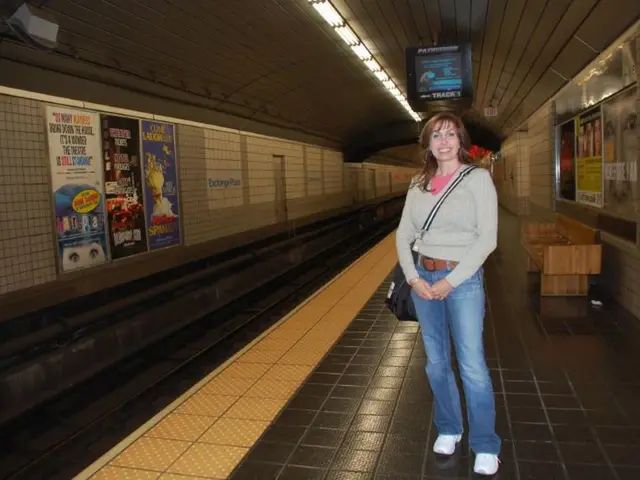Mühlenstraße in Greifswald no longer prioritizes cycling over other traffic
In a surprising turn of events, the city of Greifswald has announced the abolition of bike street regulations on Mühlenstraße, effective from September 8, 2025. This decision, made following a ruling by the Greifswald Administrative Court, has stirred up a debate among city residents and cycling advocates.
The previous solution had proven beneficial in promoting a harmonious coexistence of various traffic types. However, the city administration, after careful deliberation, concluded that the only way to balance the diverse interests was to abolish the bike street regulations. This decision, they argue, does not significantly restrict cyclists' use of Mühlenstraße, as the previous parking regulations remain in effect.
The ruling was in response to a plaintiff's appeal against the designation of resident parking spaces in Mühlenstraße, which is designated as a bike street. The plaintiff, whose identity remains undisclosed, argued that the parking was excessively restricting the actual space for road traffic. They also contended that the return of vehicles from the cul-de-sac would further narrow the road, posing a danger to cyclists.
The Administrative Court agreed with the plaintiff's arguments and ruled that the resident parking spaces must be removed, resulting in a general no-stopping zone in the entire Mühlenstraße. As a result, cyclists will no longer be allowed to ride side by side on Mühlenstraße.
The decision has been met with disappointment by cycling advocates, who view it as a step backwards for Greifswald as a bike city. They argue that the city is losing a piece of bike-friendly infrastructure due to this decision. The principle of mutual consideration, they believe, could have been maintained practically in the previous solution.
Mayor Dr. Stefan Fassbinder and Senator for Urban Development Achim Lerm have expressed their regret over the development. They emphasised that the needs of established businesses and residents, such as delivery traffic, loading and unloading, services from craftsmen, social services, and waste disposal, had to be considered in the implementation of the new traffic regulations.
The city administration, police, fire department, and traffic authority inspected the site to determine how to implement the traffic regulations in a way that ensures the safety and convenience of all road users. The street will again be part of the 30 km/h zone in the city center.
Despite the legal dispute, it is clear that the conditions for cycling in Greifswald have not been improved. The hope remains that future decisions will prioritise the needs of cyclists and continue to build on the city's reputation as a bike-friendly city.
Read also:
- International powers, including France, Germany, and the UK, advocate for the reinstatement of sanctions against Iran.
- Companies urged to combat employee resignation crisis, as per findings from the Addeco Group
- Republicans advocate Trump's domestic policy plans in Iowa, though some business owners remain skeptic
- International discussions on plastic waste management might be shaped by China pledging to reduce plastic production levels.







